Israel-Hamas War - What happened on day 66?
Israel's war in Gaza could finish by February, officials speculate • 559 soldiers wounded in Gaza since IDF's invasion began; 1,600 wounded since October 7
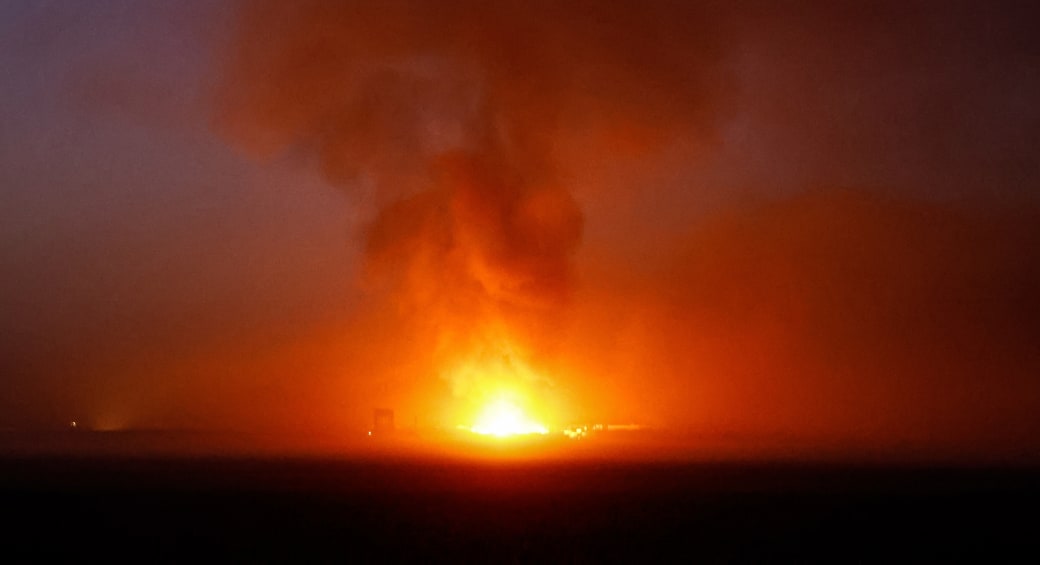

Gallant: Hamas terrorists, including those involved in Oct. 7, surrendering in Gaza
Hamas is crumbling and its last strongholds falling, Defense Minister Yoav Gallant said.
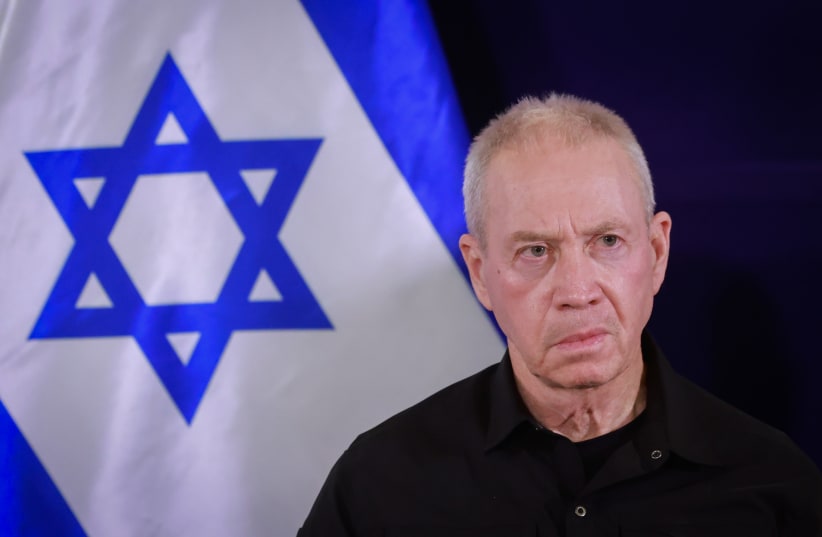
Many of the Hamas terrorists surrendering to the IDF were involved in the October 7 massacre, Defense Minister Yoav Gallant stated on Monday evening during a televised address.
"Hamas is on the verge of dissolution, the IDF is taking over its last strongholds," Gallant said.
He added that Israel has no intention to maintain a permanent presence in the Gaza Strip.
Go to the full article >>Humiliating pictures of Hamas terrorists may harm Israel - ex-official
The impact of photos showing humiliated terrorists on Israel's war objectives is debated, as concerns arise over potential harm and embarrassing documents held by Hamas.
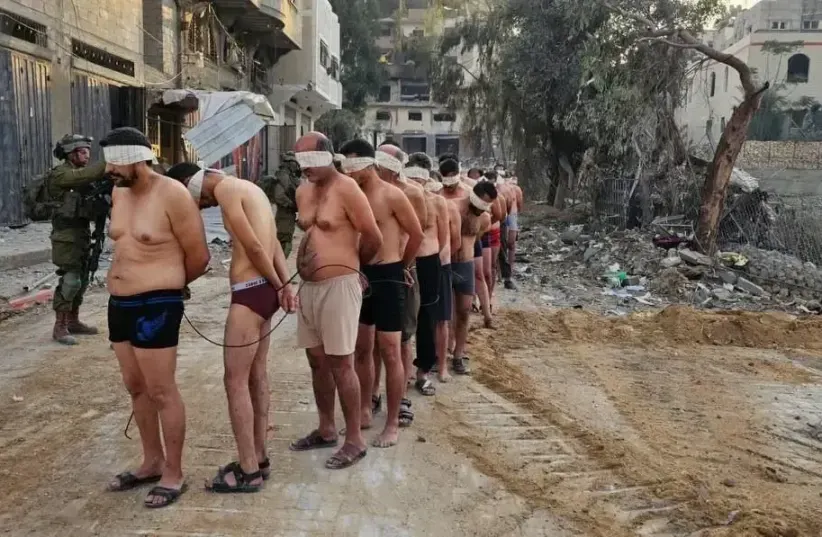
The question of whether photos depicting Hamas terrorists in submissive positions contribute to Israel's war objectives or hinder them intensifies with the increasing frequency of such images being released.
As the IDF intensifies operations in the southern Gaza Strip, the security establishment must take a stance on this matter, which appears to divide opinions.
While these photos may humiliate Hamas, a former senior security official suggests they may not truly serve our interests. "These photos are intended to resonate with the Israeli public, albeit within a specific demographic, but their effectiveness is uncertain," the former official said.
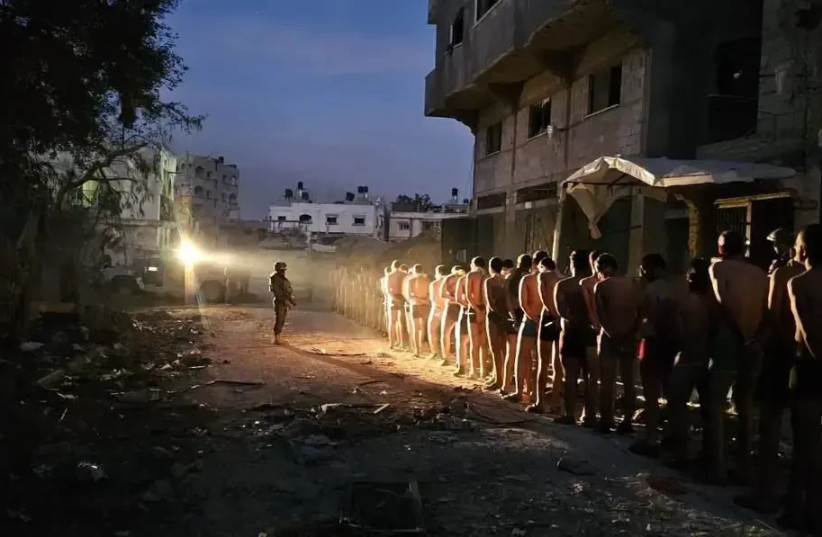
Are the photos of surrendering Hamas terrorists in Gaza staged?
The same official raises concerns about some events appearing staged. For instance, in a recently released video, an elderly man in his underwear can be seen moving to the front of the line and placing his weapon down. This particular photo raises numerous questions, according to the official.
"Under what circumstances would someone undress before surrendering their weapon?" they pointed out. "Logically, the weapon should be surrendered first, followed by removing clothes."
Additionally, the official points out that not everyone there is a terrorist. Some people are questioned in the field and released, while only a few undergo further investigation in Israel.
The official concludes that engaging in a humiliation contest with Hamas is not worth it. He highlights that Hamas possesses videos from October 7 of Israelis in equally humiliating positions. Attempting to boost national morale through this, he warns, may result in psychological damage on the international stage.
Go to the full article >>IDF soldiers use a drone to identify and eliminate Hamas terrorists armed with RPGs
Alleged Israeli airstrikes target Iranian stronghold near Damascus
Ambulances reportedly rushed to the area shortly after the strikes.
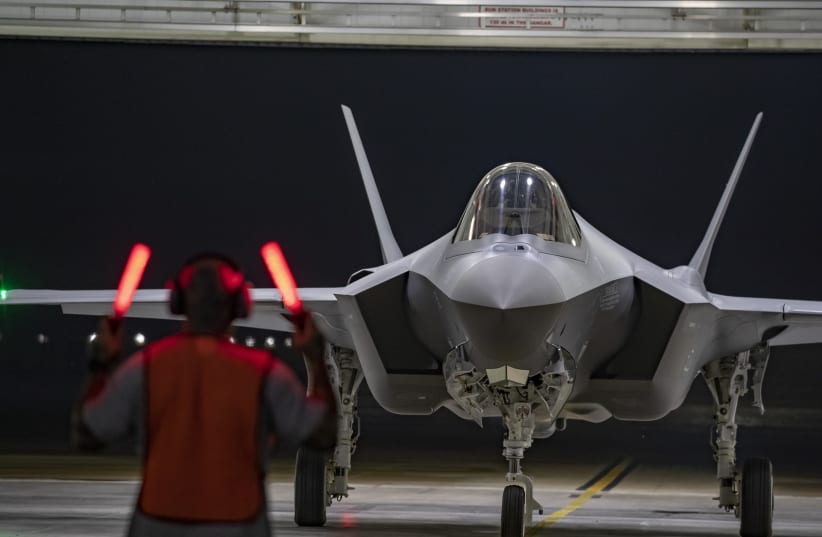
Alleged Israeli airstrikes targeted sites near Set Zaynab, a stronghold of Iranian militias, near Damascus on Sunday night, according to Syrian reports.
A site used by Iranian militias between Set Zaynab and Al-Bahdaliyah, south of Damascus, was hit in the strikes, according to the reports.
من أمام المزرعة المستهدفة على أطراف السيدة زينب جنوبي دمشق، عناصر من ميليشيات مدعومة من طهران، بعضهم يتحدث اللهجة اللبنانية يطلبون من المدنيين المغادرة من محيط الموقع المستهدف، مع تحذيرات بجولة قصف أخرى ستطال المنطقة.#صوت_العاصمة #سوريا #دمشق_وريفها #إسرائيل #السيدة_زينب pic.twitter.com/1MkSlG2XjT
— صوت العاصمة (@damascusv011) December 10, 2023
Video reportedly from the scene showed a structure on fire and individuals telling civilians who had gathered to leave the area. Ambulances rushed to the area shortly after the strikes, according to Syrian reports. Nour Abo Hassan, a journalist in southern Syria, reported that about eight Iran-backed militants were killed in the strikes.
طريق البحدلية السيدة زينب جنوب دمشق
— Nour Golan (@nourabohsn) December 10, 2023
الاستهداف #الإسرائيلي تم عندما كان يتجهز 100 عنصر للميليشيا إيران للنقاط في الجنوب السوري في محافظة القنيطرة وريف درعا الغربي #سوريا #إسرائيل #خاص pic.twitter.com/rOooIGrd1d
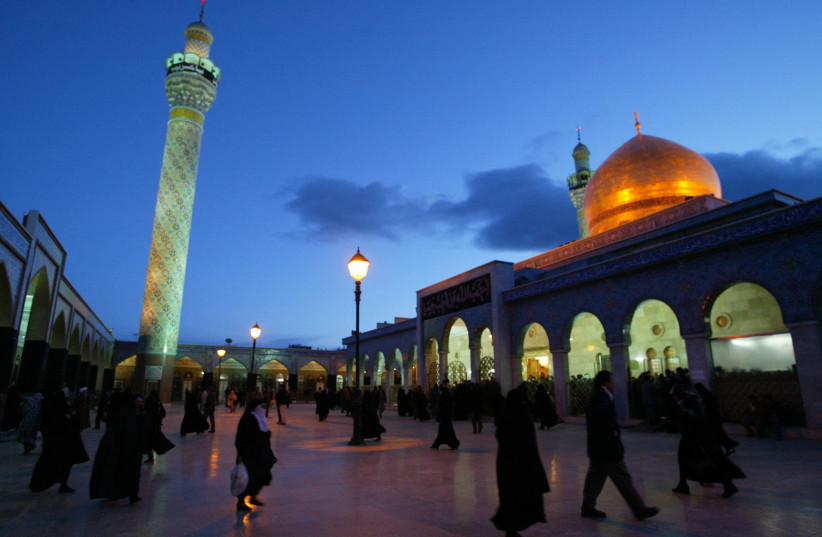
SANA, the Syrian state news site, reported that the airstrikes were carried out from over the Golan Heights, causing only material damage.
The strikes were reportedly conducted in two waves. Simultaneously, Israeli artillery targeted sites near the town of Hader in the Quneitra region along the Syrian-Israeli border, according to the Syrian Capital Voice news site.
Israeli strikes intensify in Syria
The strikes came just a few days after three Hezbollah members and one Iran-backed Syrian militant were eliminated in an alleged Israeli drone strike in Quneitra, including son of the head of Hezbollah's terrorist operations near the Syrian-Israeli border.
The Hezbollah members killed in that strike were identified as Ali Idris Salman, Hussein Issam Taha, and Hassan Ali Daqduq. Muhammad Anas al-Tamer, one of the commanders and founders of the Arab Nationalist Guard, a pan-Arab militia aligned with the Assad regime. Tamer was affiliated with the "Golan File," Hezbollah's efforts to build up terrorist infrastructure along the Syrian-Israeli border.
Daqduq was the son of Ali Mussa Daqduq, also known as Abu Hussein Sajid, the commander in charge of the Golan File.
About a week ago, two members of Iran's Islamic Revolutionary Guard Corps (IRGC) were killed in alleged Israeli airstrikes which targeted sites in Set Zaynab, according to the IRGC.
The two were identified as Mohammad Ali Ataee Shoorche and Panah Taqizadeh, with the IRGC saying they were carrying out an "advisory mission" in Syria.
Set Zaynab is a stronghold for Iranian and Iran-backed militias in the Damascus area. Iranian militias have numerous facilities in the area, including facilities used to store weapons headed to Hezbollah in Lebanon.
Go to the full article >>IDF announces names of four more fallen soldiers

The IDF announced the names of four more fallen soldiers on Monday morning.
One of the soldiers, Warrant Officer (Res.) Gideon Ilani, 35, of Asael, fought in the 2855th Battalion. Ilani was killed in battle in Gaza.
Warrant Officer (Res.) Etay Perry, 36, from Modi'in, fell fighting in the 8111th Battalion in southern Gaza.
Major (Res.) Eviatar Cohen, 42, from Kfar Saba, was also from the 8111th Battalion. Major Cohen was also killed fighting in southern Gaza.
Lastly, Major (Res.) Gal Becher, 34, of Oranit, an instructional officer in the 36th Brigade 36, was killed in a military road accident in southern Israel.
Go to the full article >>Former Gaza minister to Shin Bet: Hamas are 'lunatics,' no one supports Sinwar
"I have not seen anybody in the Gaza Strip who supports Sinwar," Yosef Almansi said. "Nobody likes Sinwar. There are people who, day and night, pray that God will free us from him."
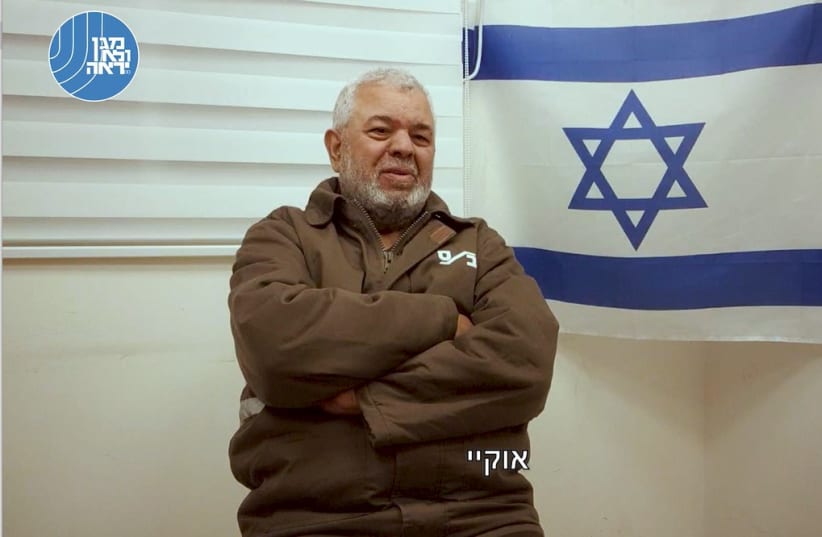
In interrogations by the Shin Bet, Hamas's former communications minister, Yosef Almansi harshly criticized the terror organization, and painted their leader, Yahya Sinwar, as an unpopular despot who has only brought harm to Palestinians, according to a statement by the agency on Sunday.
Sinwar "has delusions of grandeur," Almansi said. "He feels like he is above everyone else." The people, he said, don't agree: "I have not seen anybody in the Gaza Strip who supports Sinwar," he told Shin Bet interrogators, "nobody likes Sinwar. There are people who, day and night, pray that God will free us from him."
Speaking of the group he served as a part of the Gazan government, Almansi said that "the achievements of Hamas are the killing and destruction of more than 60% of the buildings, infrastructure, streets, and public facilities," Almansi told interrogators. "This is a group of lunatics that Sinwar leads," he said. "They destroyed the Gaza Strip. They set it back 200 years."
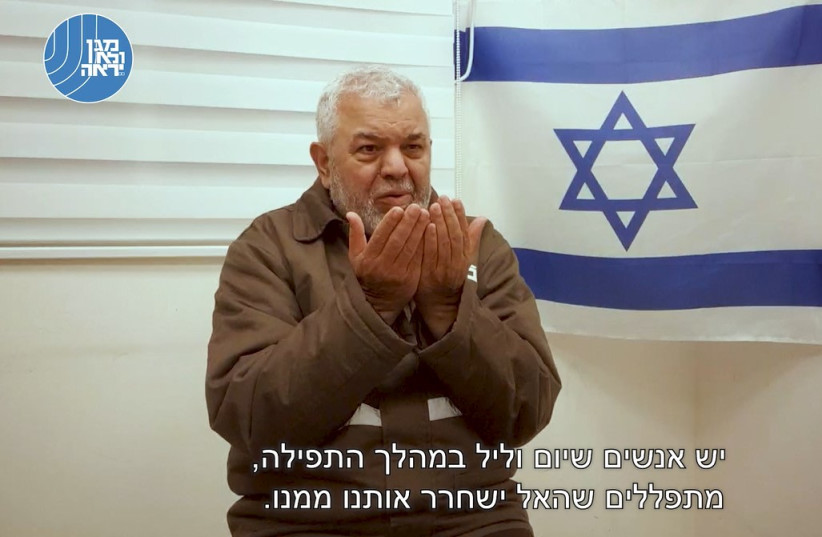
Almansi: October 7 was "the opposite of Islam"
Of Hamas's attack on Israel, Almansi said, "October 7 is the opposite of Islam. It is heresy, madness. "What they did (acts such as the raping of women, taking of 240 hostages, and killing 1,200 people) is not accepted by logic, religion, or intellect. Those who are responsible for this are Sinwar and his group."
"My advice to the people in Gaza: to oppose Sinwar's group. Let us live, take care of people. We will build Gaza; It will take time. The wound is big."
Go to the full article >>Will the war end without hostage rescue or Hamas takedown? - analysis
The two main objectives of the IDF have been to annihilate Hamas and return all hostages, but what will happen if the IDF declares victory before reaching both of these goals?
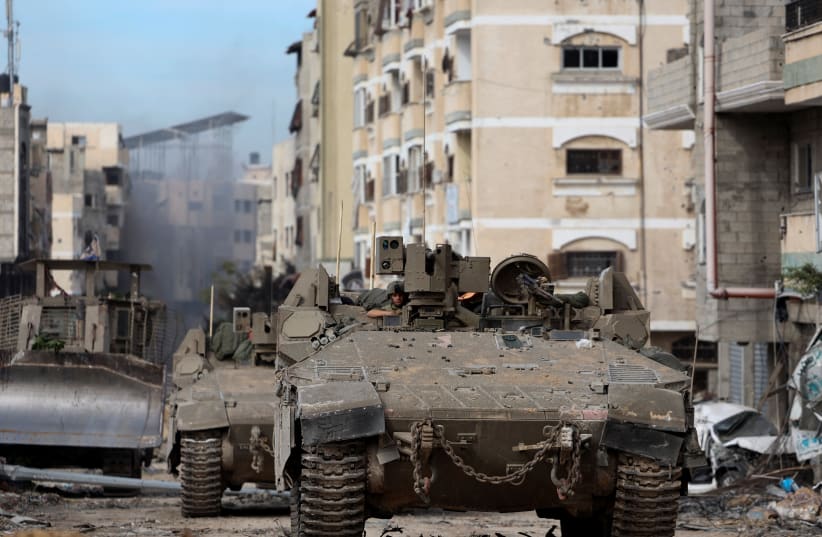
It seems unthinkable.
When Israel started its counteroffensive against Hamas in early October, the two goals were to “annihilate” Hamas and to return “all” of the hostages.
And yet, is it possible that the IDF may try to declare “victory” with a sizable number of hostages (currently ranging between 130-140 depending on the latest intelligence) still in Hamas’s hands, and the terror group’s top leaders, Yahya Sinwar and Muhammad Deif, at large?
What would such a stunning scenario look like?
Ending the war before reaching objectives
First of all, there were those who even early on said that Israel would fall short of annihilating Hamas either because of a lack of will, because of the hostages, or because of global pressure for a ceasefire.
However, these observers believed that Israel might not even implement a deep invasion of northern Gaza, or might only invade northern Gaza, but leave southern Gaza untouched.
The scenario that may be floating around now does not match those predictions of Israeli meekness anymore than it does the annihilation of Hamas and return of all hostages scenario.
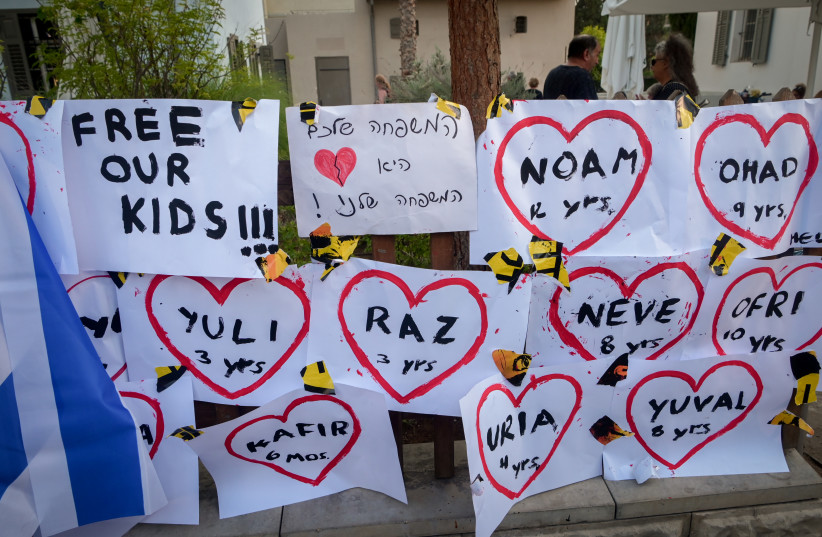
Rather, the IDF may take complete control of 95-99% of Gaza, including the north, the south, and the center (which to date has been mostly overlooked), while leaving a large segment of the hostages and Sinwar and Deif (with the two issues likely being linked) at large.
At that point, sometime in mid or late January, the IDF may seek to wear down Sinwar and Deif over time into some kind of deal for the hostages, at the same time that it is at the "easier" putting down a low-grade insurgency stage.
An increasing number of top defense officials are talking about aspects of the resolution of the First Lebanon War as a model: a mix of security zones and a negotiated expulsion of the leaders of Hamas (Israel created a southern Lebanon security zone and expelled Yasir Arafat.)
Eventually, the Lebanon security zone was viewed as a failure that Israel could not properly defend and led to large numbers of dead Israeli soldiers over two decades.
But “large” numbers of dead has new meaning after Israel lost around 1,200 mostly civilians on October 7.
The longest Israel has gone without a major conflict with the Palestinians since the Second Intifada was a few years at a time (if you take into account all of the rounds of conflicts with rockets, the 2015-2016 Knife Intifada, the 2018 border riots), such that if Israel got two decades without any attacks on its home front from Gaza, it might tolerate losses of soldiers in a new security zone.
Expelling Arafat did not end him as a threat, but it did reduce the severity of the danger he presented.
Of course, Hamas is not Arafat.
Its ideology is far more fanatical and the commitment of its followers to Israel’s destruction, as opposed to a general nationalist battle over land, is much more vicious.
So Sinwar and Deif may not accept any offer and Israel may just delay the painful decision of getting them versus returning more hostages.
But what is dizzying about this whole new scenario is that Israel may start the “cleaning up the insurgency” stage, expected to last three to nine months, while it is still dealing with Sinwar/Deif/the hostages.
What impact would this strange mix have on the long-term picture?
It is possible that as long as Sinwar/Deif/the hostages are in play, that the insurgency will be much stronger.
Those who seek to expel Israel from Gaza may feel that the IDF has failed to win, so getting Israel to leave will be easier.
This is a threat that must be considered if Israeli leaders are considering letting the Sinwar/Deif/hostages process drag out beyond the end of the “main war.”
A month ago, some top IDF officials said that they might be able to end the main war more quickly by a special forces assassination of Hamas’s top leaders. That should tell the IDF that leaving them in play and in control of hostages could be as big a shot in the arm for the terror group, as removing them could be a way to speed up the Gaza organization’s downfall.
There are also still questions about who Israel will hand over Gaza to.
Who will Israel hand Gaza over to?
Will any Gazans or any Arab countries or the Palestinian Authority be ready to risk their lives and reputation to take over Gaza when they all know that Sinwar and Deif are still a potential decisive factor? Will they want to take over a territory when there could still be an additional major Israeli operation to end the Hamas leaders at a later date or to free the hostages?
Kicking the can down the road can sometimes allow time to more easily resolve problems.
Doubtless the hope would be that time would take its toll on Sinwar and Deif and the inevitability of their defeat would make them more flexible.
But sometimes kicking the can down the road on a fundamental hard decision just means dealing with the same Catch-22 at another time with another set of impossible factors and choices at stake.
Go to the full article >>‘Don’t die for Sinwar, surrender now,’ Netanyahu tells Hamas
PM tells Putin: your cooperation with Iran is dangerous
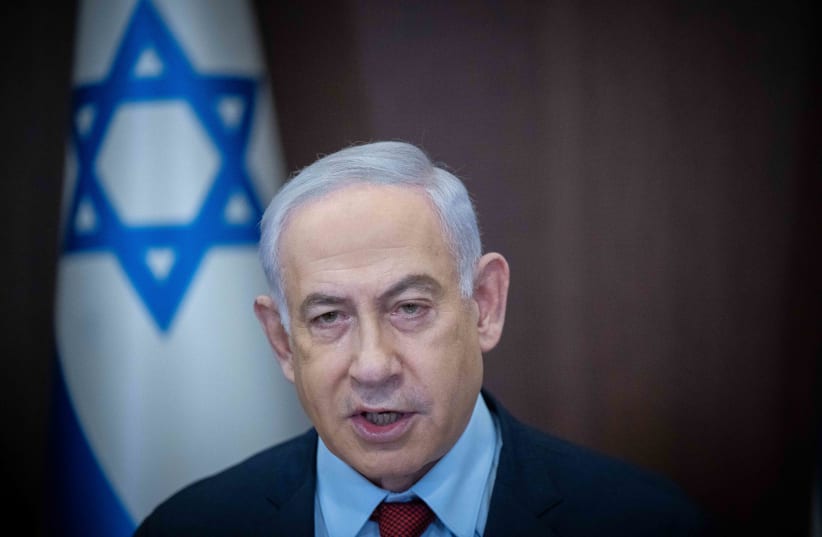
Prime Minister Benjamin Netanyahu called on Hamas to give up its arms, exclaiming that the hundreds of its combatants who had surrendered in Gaza and who had been arrested marked the start of the terror group’s demise.
“The war is still ongoing but it is the beginning of the end of Hamas,” Netanyahu said as he urged the terrorist group’s fighters not to sacrifice themselves for their leader Yahya Sinwar.
“I say to the Hamas terrorists: It’s over. Don’t die for Sinwar. Surrender – now!”
“In the past few days, dozens of Hamas terrorists have surrendered to our forces. They are laying down their weapons and turning themselves in to our heroic soldiers.” Netanyahu said.
He issued his statement as violence on the northern border heated up and amid strong calls for another humanitarian pause to the Gaza war, including from Russia and UN Secretary-General Antonio Guterres.
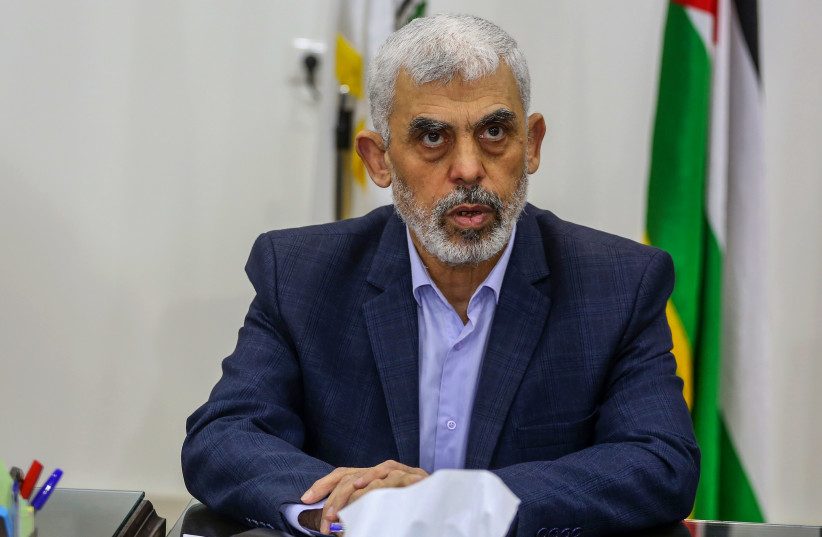
Netanyahu spoke with Russian President Vladimir Putin for close to 50 minutes on Sunday, in which he explained the necessity of the IDF’s continued Gaza campaign.
Speculation remained that the US wanted to see the campaign wrapped up by January despite its insistence that there was no timeline for such action.
Up to Israel to set the timeline for the war
US Secretary of State Antony Blinken told CNN on Sunday that it was up to Israel to set the timeline for the war. “Everyone wants to see this campaign come to a close as quickly as possible,” he said.
“But any country faced with what Israel is facing: a terrorist organization [Hamas] that attacked it in the most horrific way possible on October 7 – and as I said, has said repeatedly that it would do it again and again and again – has to get to the point where it is confident that this can’t be repeated,” Blinken said.
Still, the secretary of state stressed, it was important for Israel to maintain a low casualty count in the enclave as it worked to oust Hamas and to ensure the entry into Gaza of humanitarian aid.
Russian Foreign Minister Sergey Lavrov told the Doha Forum virtually that his country “strongly condemned” the October 7 attack that sparked the Gaza war, in which Hamas killed over 1,200 people and seized some 250 hostages.
But, “It’s not acceptable to use this event for collective punishment of millions of Palestinian people with indiscriminate shelling of the civilian quarters,” Lavrov stated as he called for a ceasefire.
Hamas has asserted that some 17,000 Palestinians have been killed in violence related to the Gaza war. Israel has said that some 7,000 Hamas terrorists are among those fatalities.
Lavrov pointed to the UN Security Council’s attempt to pass a resolution calling for a humanitarian ceasefire on Friday, which the US vetoed, explaining that it should have passed and that Washington had erred in blocking it. Russia was one of the 13 countries out of the UNSC’s 15 members that supported the resolution.
“The Americans are very good at cancel culture. When they don’t like some part of history or events, they just cancel what preceded it,” Lavrov said. But it’s important to remember what the roots of the conflict were, as he blamed Israel for events going back to its 1948 War of Independence.
There is a reason that Palestinians in Gaza feel victimized, the foreign minister said.
“The single most dangerous factor igniting extremism in the Middle East is the unsolved nature of the Palestinian state,” he said.
Lavrov did not respond when pressed as to whether he was hypocritical about his criticism of Israel given Russia’s invasion of Ukraine. “That’s up to you to judge,” he told the reporter who interviewed him from the Doha Forum stage.
Putin, in his conversation with Netanyahu, said it was essential “to avoid such grave consequences for the civilian population while countering terrorist threats” in Gaza, according to a statement from the Kremlin. “Russia is ready to provide all possible assistance to alleviate the suffering of civilians and de-escalate the conflict,” he told Netanyahu according to the Kremlin.
At the Doha Forum, UN Secretary-General Antonio Guterres swore that he would continue to work for a humanitarian ceasefire in Gaza.
“I promise I will not give up,” he said. Guterres has prompted the UNSC vote on a ceasefire resolution by invoking a rare mechanism last used in 1989 called Article 99.
The UNSC’s failure to pass a ceasefire resolution, “severely undermines” its credibility, he said.
“There is no effective protection of civilians in Gaza” and the number of civilian casualties in such a short time is “unprecedented,” Guterres stated.
Netanyahu in his talk with Putin expressed his “displeasure” with Russia’s support of the United Nations Security Council for a ceasefire resolution that did not involve a condemnation of Hamas’s October 7 attack.
“Any country that would suffer a criminal terrorist attack such as Israel experienced would act with [with an operation of] no less force than the one in which Israel operates,” Netanyahu told Putin.
The prime minister thanked Putin for Russia’s efforts toward last month’s hostage deal that saw the release of 105 hostages from Gaza. There are still 137 hostages in captivity there.
“Israel would use all means, both political and military, to release all of our abductees,” he told the Russian president.
Netanyahu also asked Putin to pressure the International Committee of the Red Cross to visit the captives in Gaza.
Separately, in a statement to his government on Sunday, Netanyahu lauded the Biden administration for its support of Israel both in Washington and at the UN, including sending Israel needed military supplies for the war.
“An additional shipment of important ammunition for continuing the war will arrive today; in effect, it is already here,” he said.
“I thank President [Joe] Biden, who I spoke with on Friday about both the US taking the correct and just stand in the UN Security Council and – of course – the material assistance that the US is providing to the IDF,” he said.
Netanyahu noted that he had also spoken over the weekend with German Chancellor Olaf Scholz and French President Emmanuel Macron, as well as with other international leaders.
“I told them that it is impossible to support the elimination of Hamas on the one hand, while on the other pressing us to end the war, which would prevent the elimination of Hamas.
“I think that in this fight, justice is on our side – and unity as well. When we are united as a people and a state, no force can prevent us from doing the right thing,” he said.
Netanyahu also focused Sunday on the Iranian threat, raising the matter in his conversation with Putin as he criticized Moscow’s “dangerous cooperation” with Tehran.
The two men spoke as the Iranian-backed Houthis kept up their threat against global shipping routes in the Red Sea in response to the Gaza war.
A Houthi military spokesperson said all ships sailing to Israeli ports are banned from the Red Sea and the Arabian Sea until Gaza receives all the food and medicine it needs.
Blinken told CNN that the Houthis represented a threat to global shipping.
“This should be and is an international concern,” he said.
“We are bringing together a group that we’ve already formed and we’re trying to strengthen its work to, on a maritime basis, help protect shipping,” he said.
“We’ve obviously taken action, including sanctions just this week, against those who are trying to finance the Houthis and their efforts,” Blinken said: “and we’ll take whatever other actions are necessary to protect our personnel and to protect our people, as well as to protect shipping.”
Reuters contributed to this report.
Go to the full article >>IDF: Abu Obeida still alive, thousands of Hamas terrorists killed
The IDF said that about 14,500 terrorists had been killed in the two northernmost governorates of Gaza. The Hamas-governed Health Ministry in Gaza says about 18,000 Palestinians have been killed.
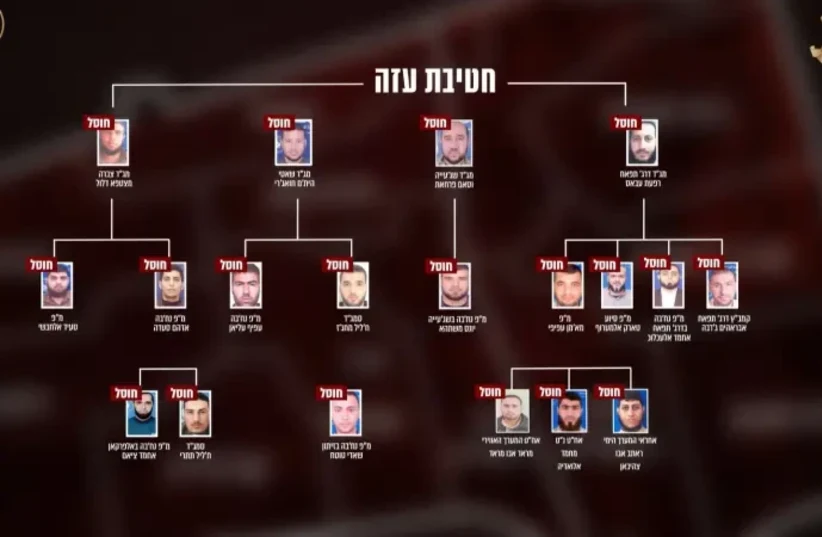
Israel announced on Sunday the identities of a number of Hamas officials that IDF forces have killed in Gaza. According to IDF figures, more than 3,500 targets have been attacked in the Gaza since the temporary ceasefire with Hamas ended on December 1, and over 22,000 targets have been attacked since the war began on October 7, with Hamas's attack on Israel.
Fighting resumed this month when Hamas fired a round of rockets into Israel, ending a week of relative quiet, as Hamas released 105 hostages, Israeli women and children as well as foreign nationals, out of the estimated 240 people it took captive during its attack on October 7. As part of the deal, Israel released 230 Palestinian prisoners suspected or convicted of security offenses.
The IDF said that about 14,500 terrorists had been killed in the two northernmost governorates of Gaza. The Hamas-governed Health Ministry in Gaza says that about 18,000 Palestinians total have been killed since the war began.
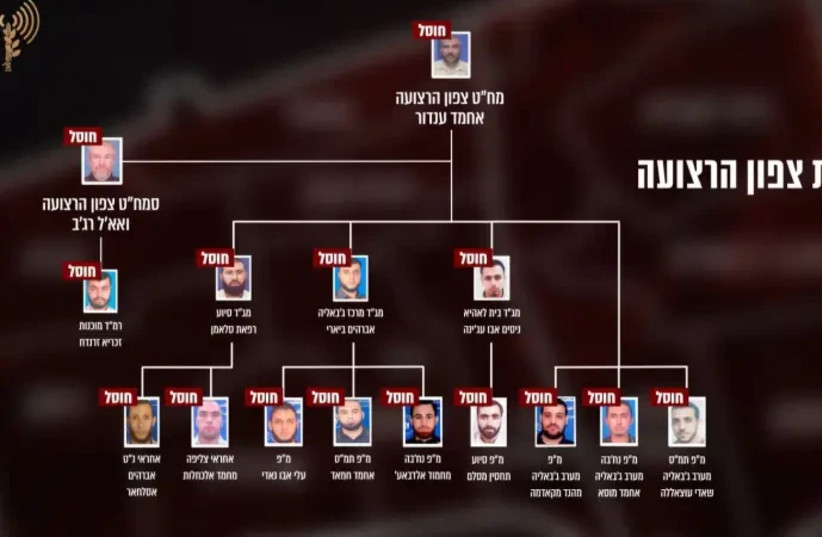
Hamas spokesman releases statement, after rumors he'd been killed
Having focused on the north of the strip during the first phase of the war, IDF soldiers are pushing south, operating in a number of Hamas strongholds, including Jabalya, Shejaia, Beit Hanoun and Khan Yunis.
IDF ground, air and naval troops continue operations targeting and eliminating terrorists, their commanders and any Hamas operatives until we meet our goals—to eliminate Hamas and bring the hostages home. pic.twitter.com/P4tCtu1YBs
— Israel Defense Forces (@IDF) December 10, 2023
Absent from the list of those killed is Abu Obeida, Hamas's spokesman, who was reported killed or seriously wounded in an IDF attack in Sujaiya last week. Obaidah, who had not been heard from publicly since the end of November, issued a recorded statement, in which he declared that "the temporary truce proved our credibility" and that "none of the enemy's prisoners left, and none will leave, except on our terms."
Last week, the IDF's Arabic-language spokesman, Lt. Col. Avichay Adraee, revealed a photo of Abu Obeida, who only appears publicly while wearing a mask. He "hides behind his red mask, exactly as Hamas hides behind civilian infrastructure to launch rockets at Israel," Adraee said.
UN General Assembly likely to vote Tuesday on Gaza ceasefire demand

The 193-member United Nations General Assembly is likely to vote Tuesday on a draft resolution demanding an immediate humanitarian ceasefire in the conflict between Israel and Palestinian militants Hamas in the Gaza Strip, diplomats said on Sunday.
The move comes after the US vetoed on Friday a UN Security Council demand for immediate humanitarian ceasefire in Gaza.
The General Assembly in October adopted a resolution - 121 votes in favor, 14 against and 44 abstentions - calling for "an immediate, durable and sustained humanitarian truce leading to a cessation of hostilities."
Go to the full article >>Israel-Hamas War: What you need to know
- Hamas launched a massive attack on October 7, with thousands of terrorists infiltrating from the Gaza border and taking some 240 hostages into Gaza
- Over 1,200 Israelis and foreign nationals were murdered, including over 350 in the Re'im music festival and hundreds of Israeli civilians across Gaza border communities